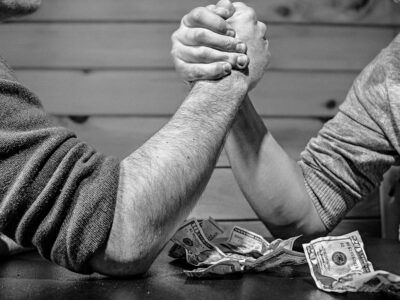The director-general of the BBC, Tony Hall, is set to reveal plans to finally tackle the gender gap at the corporation, regarding the amount it pays its presenters.
This comes on the back of shocking revelations that male stars at the BBC are paid an exorbitant amount more than their female counterparts.
The BBC Pay Gap Refresher
– The government required the disclosure of, “people paid more than £150,000 of licence fee revenue” in the last financial year.
– Top Gear and BBC Radio 2 host Chris Evans topped the list, being paid a total of £2.25 million a year.
– The best paid female star was Claudia Winkleman on a salary of between £450,000 – £500,000 a year. She is then followed by the One Show’s Alex Jones who earns between £400,000 – £450,000.
– Emily Maitlis did not appear on the list, which only details staff earning more than £150,000, however her Newsnight co-star Evan Davis earns at least £250,000.
– The report covers direct payment only. Anyone who is paid via an independent production company is exempt from the list, meaning that many male stars are paid considerably more.
– Only 33% of 96 on-screen stars earning over £150,000 a year are women.
– The 10 top earning stars from black, Asian or minority ethnic backgrounds earned roughly the same combined as Evans.
Having authorised accountancy firm PwC, and law firm Eversheds Sutherland to conduct an audit on the corporation’s wages, the BBC boss has committed to eradicating the pay gap by 2020. It is thought that this will be achieved, in part, by slashing the wages of some of the highest earners, though how that will play out remains to be seen.
However, the controversy doesn’t end there. The PwC is already conducting a review on the pay disparity between World Service staff and the other news departments.
Talking to The Telegraph, a BBC insider asserted, “Tony and the executive team are keen to do something pretty big and dramatic. It’s going to be open, transparent and independent.” Though right now, this doesn’t feel like anything but lip service.
The corporation was recently delivered a letter signed by 40 of the BBC’s top talent including Clare Balding, Victoria Derbyshire and Jenni Murray, demanding that urgent action be taken to cut the pay gap out, and ensuring women are paid the same as men for the same jobs. So of course the BBC has to do something about the matter now, however, these stats aren’t news to most. So the question remains, why weren’t these concerns raised before – why weren’t the BBC’s talent making their voices heard on the matter, when they had access to the largest media organisation on the planet?
This feels like a step in the right direction, but equally like it could just be a side-step. A way to dodge the very real controversy of this summer, and quieten the dissenting voices. Setting the date for 3 years’ time, for instance, begs the questions, why so long? Why not now?
Echoing this point, Nicola Sturgeon stated, “I do think the BBC should accelerate here. The equal pay act passed in the year I was born, which, as you probably know, was not yesterday. These issues have frankly been going on under the radar for too long. Well, they are not under the radar any more and it’s time to up the progress.”
Are they BBC going to drag their heels so that it can be pushed under the radar again? Only time will tell.
[Tweet “The BBC are Going to Tackle the Pay Gap”]
[subscribe2]









